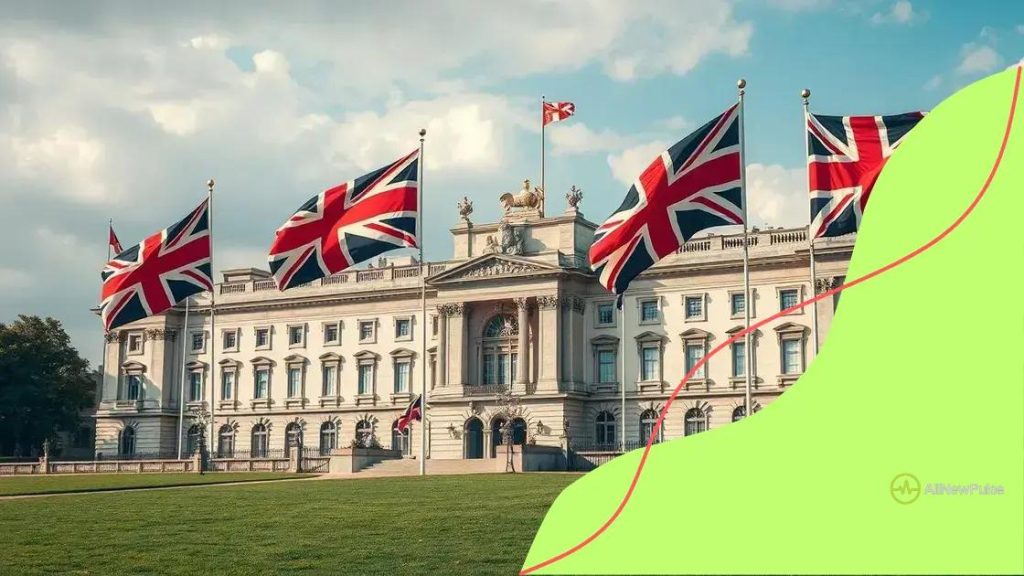MonarchyDebate: Exploring the Pros and Cons of Royalty

The future of monarchy in a democratic world depends on its ability to adapt to societal changes, maintain relevance through public engagement, and balance tradition with modern values while ensuring democratic principles are upheld.
MonarchyDebate invites you to dive into the complex world of royal families. Have you ever wondered about their purpose in today’s society? In this article, we’ll explore various perspectives on the monarchy’s role and significance.
Understanding the monarchy’s historical role
The historical role of the monarchy has shaped nations and cultures for centuries. Understanding this impact requires looking back at how monarchies have evolved. The monarchy signifies more than just royalty; it embodies tradition, power, and governance.
Origins of the Monarchy
Monarchies began in ancient civilizations, where rulers had absolute power. These figures were seen as divinely chosen, providing stability and leadership. Over time, the concept of a constitutional monarchy developed, where a monarch’s powers were limited by law.
Impact on Society
The influence of monarchies can be seen in various areas:
- Royal family structures that define social hierarchies.
- Customs and traditions that shape national identities.
- The role of monarchs in diplomacy and international relations.
- Legal frameworks that arose from royal decrees.
In many countries, the monarchy serves as a symbol of continuity, representing the past while adapting to modern expectations. For example, ceremonies and rituals often celebrate a nation’s history, bridging the gap between tradition and contemporary society.
Furthermore, monarchies contribute to the economy through tourism. Historical sites, royal palaces, and cultural events attract millions of visitors each year, showcasing a vibrant heritage that remains relevant today.
Yet, the role of the monarchy is also debated. Critics argue that it perpetuates inequality by elevating certain individuals based solely on birthright. This ongoing debate about the monarchy’s place in society highlights the evolving nature of governance.
Modern Monarchies
In the modern era, many monarchies have transitioned to ceremonial roles, with elected officials handling the day-to-day governance. However, they often still hold significant cultural and ethical sway in their nations.
- Public engagements that foster community connections.
- Charitable initiatives that address social issues.
- National representation in various ceremonies.
- Maintaining traditions that promote national unity.
Ultimately, the historical role of the monarchy serves as a fascinating lens to examine the evolution of power and society. By understanding this history, we can better appreciate the complex dynamics that continue to influence modern governance and cultural identity.
Arguments for retaining royal families
The debate surrounding the retention of royal families is both complex and thought-provoking. Many argue that maintaining these institutions offers valuable cultural and historical continuity in society.
Cultural Heritage
Royal families represent the heritage of a nation, preserving traditions that have been passed down through generations. These institutions help to foster a sense of identity and unity among citizens. Through ceremonies and public appearances, royals often engage in cultural practices that celebrate their nation’s unique history.
National Unity
In times of division, a monarchy can serve as a symbol of unity. Royal families often promote national pride and cohesion during celebrations, like state holidays and national events. Their presence can help bridge social and political gaps, reminding citizens of shared values and goals.
- Promoting charitable causes that benefit communities.
- Encouraging participation in cultural events.
- Appearing as unifying figures in public crises.
Furthermore, royal families can provide stability in governance. While modern monarchies often serve a ceremonial role, they can still play a part in the political landscape by supporting democratic processes. Their influence allows them to advocate for social issues and initiatives that resonate with the populace.
Traditionally, royal families also attract tourism. Countries with rich royal histories often have visitors drawn to their palaces and historical sites. This tourism boosts local economies and brings international attention to cultural landmarks.
Philanthropy and Social Responsibility
Many royal family members are actively involved in charitable work. Their established platforms allow them to raise awareness and funds for various causes. This philanthropic work includes:
- Supporting health initiatives for vulnerable communities.
- Addressing environmental issues and promoting sustainability.
- Championing education and youth programs.
Having royal families can create an aspirational figure in society, encouraging the public to engage in community service and support charitable organizations. This positive influence can significantly impact citizens’ attitudes towards giving and social responsibility.
Critics’ views on monarchy’s relevance today

Critics of the monarchy often argue that these institutions are outdated and irrelevant in today’s society. Many believe that royal families do not represent modern democratic values, raising questions about their role in governance and culture.
Arguments Against Monarchy
One major argument is that monarchies promote inequality. Critics claim that the very idea of a royal family reinforces class divisions. In a world striving for equality, maintaining a monarchy can seem contradictory to democratic principles.
Accountability Issues
Another significant concern is the lack of accountability. Unlike elected officials, members of the royal family often face little scrutiny over their actions. This lack of checks and balances can lead to mismanagement and a disconnect from everyday citizens.
- Royal family members may live lavishly while others struggle.
- There is often little transparency in royal funding.
- Critics argue that monarchy perpetuates privilege without merit.
Moreover, the relevance of the monarchy is questioned due to changing public attitudes. Younger generations tend to favor egalitarian values and may not see the monarchy as a symbol of national pride. Instead, they look for leadership that reflects contemporary societal values.
This shifting perspective can diminish the monarchy’s support base. Discussions about abolishing the monarchy or reforming its role are increasingly common in public discourse. Many would like to see a system of governance that better reflects the will of the people.
Calls for Reform
Some propose significant reforms to adapt the monarchy to modern standards. Ideas include reducing the royal family’s powers or transforming them into purely ceremonial figures. This could help tighten the relationship between royal families and the citizens they serve.
- Implementing stricter guidelines for royal funding and expenses.
- Encouraging royal participation in social issues.
- Enhancing public access to royal activities and decisions.
In this dynamic context, the royal family must either evolve or risk becoming irrelevant. As societies seek fairness and accountability, the discussions around the monarchy will likely continue to develop.
Cultural impact of monarchy on society
The cultural impact of the monarchy on society is profound and multifaceted. Royal families often serve as symbols of national identity, connecting citizens to their shared history.
Traditions and Ceremonies
One significant aspect of this impact is through traditions and ceremonies. Events like coronations, state visits, and public celebrations create a sense of continuity that resonates with people. These ceremonies often emphasize values such as loyalty and duty, highlighting the monarchy’s role as a unifying force.
Influence on Arts and Literature
The monarchy also plays a vital role in the arts and literature of a nation. Artistic expressions often draw inspiration from royal histories and figures. This influence is visible in:
- Literary works that explore themes of power and lineage.
- Visual arts that depict royal portraits and historical events.
- Festivals that celebrate royal anniversaries or achievements.
- Music composed for royal occasions, fostering national pride.
Through these artistic channels, the monarchy helps shape cultural narratives that influence public perception and value systems.
Additionally, the royal family’s involvement in charitable endeavors enriches cultural life. Many royal members champion causes that support education, health, and social welfare. By endorsing these programs, they promote values of compassion and community engagement, reflecting the nation’s commitment to caring for its citizens.
Modern Cultural Significance
In modern times, the monarchy faces challenges but continues to adapt. Social media and global communication have transformed how royal activities are perceived. Younger generations often seek a more relatable and transparent monarchy. However, royal families that engage authentically with the public often strengthen their cultural relevance.
- Direct interactions with citizens can enhance public support.
- Embracing diversity reflects a modern understanding of society.
- Addressing contemporary issues demonstrates commitment to national values.
The monarchy’s impact on cultural identity remains significant. As society evolves, the way people perceive and interact with royal traditions may change, yet the cultural threads woven by the monarchy will likely persist, shaping identities for generations to come.
Future of monarchy in a democratic world
The future of the monarchy in a democratic world is a topic of much debate and speculation. As societies continue to evolve, the role of royal families faces new challenges and opportunities.
Adapting to Change
One key aspect of the monarchy’s future is its ability to adapt to changing societal values. Modern monarchies can thrive by embracing transparency and engaging with their citizens. By being more approachable, royal families can maintain their relevance in a fast-paced world.
Balancing Tradition and Modernity
Another important consideration is the balance between tradition and modernity. Royal families often symbolize longstanding traditions, yet they must also reflect contemporary values. This duality can be achieved through:
- Involvement in social issues that matter to the public.
- Active participation in community service and charitable initiatives.
- Embracing diversity and inclusivity within their platforms.
By focusing on these aspects, monarchies can foster a positive public image and resonate with younger generations.
User engagement through social media also plays a crucial role. Many young people connect with royals via platforms like Instagram and Twitter, where royals share glimpses of their lives. This engagement helps bridge the gap between tradition and a contemporary audience, making the monarchy more relatable.
The Role of Constitutional Monarchy
In a democratic setting, the constitutional monarchy offers a unique framework. Here, the monarchy exists with limited powers, focusing on ceremonial roles while elected officials handle governance. This arrangement allows for stability and continuity while respecting democratic principles.
- Constitutional monarchies can represent a nation in international relations.
- They often serve as figures of national unity during times of crisis.
- Maintaining a neutral position helps prevent political biases.
The future also depends on how well the monarchy evolves and responds to public demands. If royal families can demonstrate their importance within modern governance and civil society, they may continue to flourish in a democratic world.
FAQ – Questions about the future of monarchy in a democratic world
What is the role of monarchy in modern democracy?
Monarchy can serve as a ceremonial figure while elected officials handle governance, offering stability and continuity.
How can monarchies remain relevant today?
Monarchies must embrace transparency, engage with citizens, and adapt to societal changes to maintain relevance.
What impact do royal families have on national identity?
Royal families often symbolize cultural heritage and unity, connecting citizens to their nation’s history and traditions.
How does social media influence the monarchy’s future?
Social media allows royal families to connect with younger generations and engage directly with the public, enhancing their relatability.





